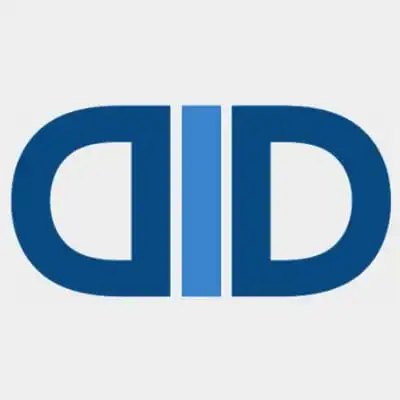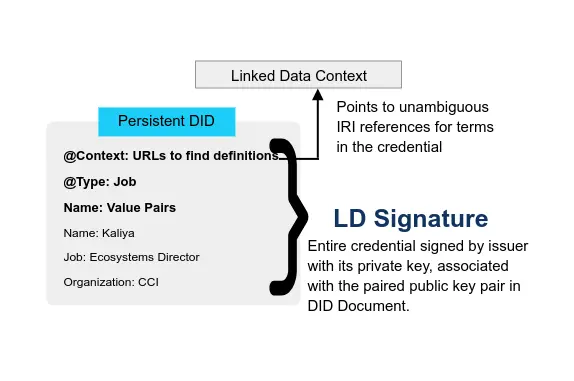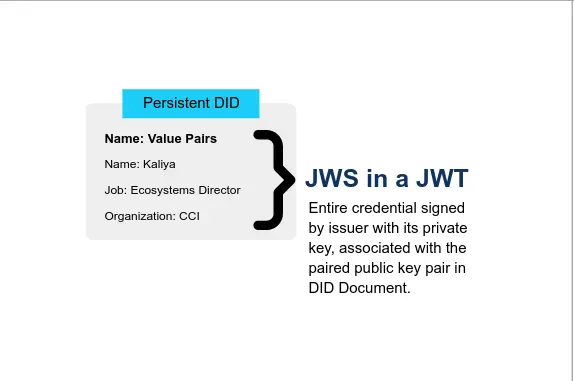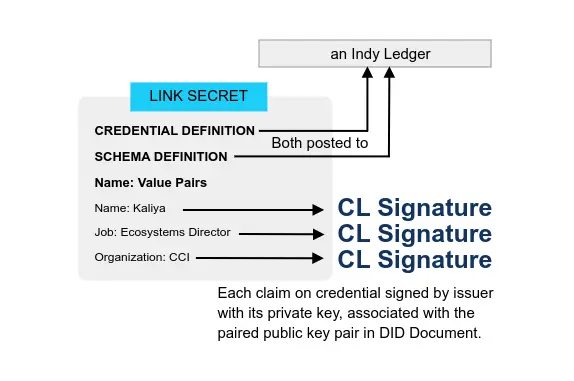IBM Identity
Company
Name: IBM
Main: Website, Blog, Socials: Twitter, Youtube, Crunchbase, Linkedin, Related: DIF, SecureKey, Indy, Sovrin Foundation, Mooti Founder: Thomas J. Watson Founded: 1911-06-06 Location: USA, New York, Armonk Sector: Enterprise Industry: IT Standard: Verifiable Credentials, DIDWe bring together all the necessary technology and services, regardless of where those solutions come from, to help clients solve the most pressing business problems.
Product
- Digital Health Pass Type: Product Date: 2022-06-03 Market: COVID Standard: DID, Verifiable Credentials
- IBM Digital Health Pass Type: Product Date: 2021-05-24 Location: Global Market: COVID Standard: Verifiable Credentials
- IBM Verify App Related: Verity Type: Product Date: 2021-03-05
- IBM Security Verify Related: Verity Type: Product Date: 2020-07
- IBM Verify App Type: App Date: 2020 Projects: Verify
the digital wallet can allow individuals to maintain control of their Personal health information and share it in a way that is secured, verifiable, and trusted. Individuals can share their health pass to return to the activities and things they love, without requiring exposure of the underlying Personal data used to generate the credential.
Built on IBM Blockchain technology, Digital Health Pass is designed to enable organizations to verify health credentials for employees, customers and visitors entering their site based on criteria specified by the organization. It can allow an individual to manage their information through an encrypted digital wallet on their smartphone and maintain control of what they share, with whom and for what purpose. It’s one solution in our Watson Works suite of workplace solutions.
With IBM Verify Credentials, you can begin your journey of exploring the benefits of decentralized identity. We have provided an interactive experience centered around the challenge of proving your identity while opening a financial account. Additionally, we will walk you through the development of your first end-to-end decentralized identity solution.
You will first obtain two credentials: one issued by a fictional government and one from IBM HR, your fictional employer. You will then use those credentials to open a financial account with BigBlue Credit Union.
Once you’ve experienced this interactive exploration, you can build your own decentralized identity applications that emulate other issuances and verifications of credentials.
Modernized, modular IBM Security™ Verify solution provides deep, AI-powered context for both consumer and workforce identity and access management. Protect your users and apps, inside and outside the enterprise, with a low-friction, cloud-native, software-as-a-service (SaaS) approach that leverages the cloud. For legacy, on-prem apps, the Verify Access version provides a smooth path to cloud, so you can transition at your own pace.
Meta
- New York State and IBM Digital Health Pass Pilot Type: Press Date: 2021-03-11 Location: NYS Market: COVID Focus: Pilot Standard: DID, Verifiable Credentials
- Good Health Pass a new Cross Sector Initiative to restore Global Travel Related: Good Health Pass Collaborative, Airports Council International (ACI), Commons Project Foundation, Covid Credentials Initiative, Evernym, Hyperledger, International Chamber of Commerce (ICC), Linux Foundation Public Health, Lumedic, Mastercard, Trust Over IP Foundation Parent: ID2020 Type: Post Date: 2021-02-09 Market: COVID
- IBM and SecureKey Technologies to Deliver Blockchain-Based Digital Identity Network for Consumers Parent: SecureKey Type: Press Date: 2017-03-20 Standard: DID, Verifiable Credentials
ID2020 announced the launch of the Good Health Pass Collaborative along with more than 25 leading individual companies and organizations in the technology, health, and travel sectors — including the Airports Council International (ACI), Commons Project Foundation, Covid Credentials Initiative, Evernym, Hyperledger, IBM, International Chamber of Commerce (ICC), Linux Foundation Public Health, Lumedic, Mastercard, Trust Over IP Foundation, and others.
IBM (NYSE: IBM) and SecureKey Technologies today announced they are working together to enable a new digital identity and attribute sharing network based on IBM Blockchain. The network will be designed to make it easier for consumers to verify they are who they say they are, in a privacy-enhanced, security-rich and efficient way. When launched later this year, consumers can use the network to instantly verify their identity for services such as new bank accounts, driver’s licenses or utilities.
Ecosystem
- Building a digital trust ecosystem for mining in British Columbia Type: Post Founder: Philip Duffy Date: 2021-11-02 Sector: Public Focus: Physical Creds
- Opening New York State for business with the power of blockchain Related: IBM Digital Health Pass Type: Post Founder: Glenn Finch Date: 2021-08-24 Location: USA: NYS Sector: Public Market: COVID Projects: Excelsior Pass, Smart Cards Standard: Verifiable Credentials
- New York’s Vaccine Passport Could Cost Taxpayers $17 Million Parent: NYTimes Type: Post Date: 2021-06-09 Sector: Public Market: COVID Standard: DID, Verifiable Credentials
- Moving forward with Digital Health Passes Type: Post Founder: Kal Patel Date: 2021-05-11 Sector: Public Market: COVID Standard: DID, Verifiable Credentials
The Mines Digital Trust Ecosystem wallet uses verifiable credentials which are enhanced digital versions of physical credentials. The Mines Digital Trust Ecosystem is built on technology that is highly transparent, secure, tamper-proof, and immutable. From the moment information is stored, it cannot be changed. Credentials can be revoked and re-issued as business processes dictate.
Excelsior Pass Plus expands travel and commerce opportunities for New Yorkers by enabling compatibility with New York State’s Excelsior Pass platform which has generated three million passes since its launch in March that provide digital proof of vaccination or a negative test result.
The state’s contract with IBM details a Phase 2 of the Excelsior Pass, which could include uses that some advocates say raise privacy concerns.
We envision a future that will include multiple Health Pass solutions, giving organizations and consumers the ability to choose which to utilize. This is why my team and I have put an emphasis on the interoperability of our solution. In addition, easy communication between state and federal health systems will reduce necessary investment and increase access to Digital Health Passes. In the near future we envision a user from any state being able to use their Health Pass in New York or any other state of their choice.
Explainer
- internet’s next step: era of digital credentials Type: Post Founder: Kal Patel Date: 2021-12-01 Sector: Public Market: Education, Healthcare Standard: Verifiable Credentials
- Automating workplace vaccination verification — a path out of the pandemic Type: Post Founder: Anouk Brumfield Date: 2021-11-11 Location: Global Market: COVID Standard: DID, Verifiable Credentials
- Innovation Insight for Decentralized Identity and Verifiable Claims: A Gartner Report Type: Report Date: 2021-08-18 Market: Security, Privacy Focus: Machine Readable
- 3 key areas of enterprise blockchain adoption in 2021 Type: Post Founder: Anthony Day Date: 2021-04-03 Standard: DID, Verifiable Credentials
- What is a vaccine passport? Type: Topic Date: 2021-01-01 Market: COVID
- Blockchain for trusted security labels Type: Post Founder: Tim Olson Date: 2019-11-05 Location: Global Industry: Security Standard: DID, Verifiable Credentials
- Decentralized Identity Introduction Related: Sovrin Type: Presentation Authors: Dan Gisolfi , Milan Patel , Rachel Radulovich Date: 2018-09-10 Location: Global Tech: Indy, Sovrin Standard: DID, Verifiable Credentials
- Finance Use Case Type: Presentation Date: 2018-08-21 Location: Global Market: Finance Standard: DID, Verifiable Credentials
- Self-sovereign identity: Why blockchain? Related: Sovrin Type: Post Founder: Dan Gisolfi Date: 2018-06-13 Location: Global Tech: Indy, Sovrin Standard: DID, Verifiable Credentials
- How do we start tackling the existing identity problem Type: Post Founder: Milan Patel Date: 2018-06-04 Standard: DID, Verifiable Credentials
- Towards Self Sovereign Identity Related: Sovrin Type: Presentation Date: 2018-05-08 Tech: Indy, Sovrin Standard: DID, Verifiable Credentials
- Healthcare Use Case Type: Presentation Date: 2018 Location: Global Market: Healthcare Standard: DID, Verifiable Credentials
- Government Use Case Type: Presentation Date: 2018 Location: Global Sector: Public Standard: DID, Verifiable Credentials
Imagine being able to rid your wallet of a driver’s license, an insurance card, a student or employee ID and more. Imagine not having to worry about losing your passport and vaccination records on a trip abroad, or about authenticity of designer shoes you just purchased
The Department of Labor’s Occupational Safety and Health Administration (OSHA) recently released a rule on requiring all employers with 100 or more employees to ensure their workforce is fully vaccinated or require any workers who remain unvaccinated to produce a negative test result on at least a weekly basis before coming to work. This rule impacts ~80 million workers — every company in the S&P 500
While the risk of fraud and data misuse is increasing, decentralized identity and credentials are meeting the demands of businesses across the digital identity value chain with:
Enhanced security
Privacy & user experience with the ability to easily consent
Shareable & verifiable claims without having to disclose sensitive data
With this report, access promising use cases, risks and considerations, and expert recommendations on creating value for the fully decentralized future.
Government policies vary on the topic, standards are only just starting to emerge, and citizens and enterprises are rightly focused on preserving privacy and equality with our national and international responses. IBM is supporting countries like Germany as well as the State of New York to issue trusted, privacy-preserving credentials.
A vaccine passport is a physical or digital health credential to confirm a person has been vaccinated for a particular contagious disease to enable travel.
A blockchain-based self-sovereign identity (SSI) network in conjunction with W3C verifiable credentials would provide an open, governable, system-independent means of issuing, holding, presenting, and verifying trusted security labels for any entity at scale — person or non-person. These blockchain-based security labels may be used by both MLS and non-MLS systems as a trusted basis for access control and authorization decisions to reduce risk exposure.
An ecosystem model whereby users generate and manage their own digital identity without relying on a central repository.
• Identity is derived through Distributed certified credentials
• Trust Frameworks: Global Public and Domain Specific (Business, Legal, Technical)
• Built-for security and scale: push identity to the edges of the networks
• Built using Hyperledger Indy
David Vincent wants to apply for a loan online. His bank’s
know-your-customer process for obtaining a loan needs to be
compliant with federal regulations. As such, David is required to
present a government-issued citizen ID and proof of employment.
Let’s compare how David could use a Decentralized Identity Network
or a Consortium Identity Network to make the process easier and more
secure for him, seamlessly protecting his identity.
Several years ago, the Sovrin vision was introduced using a dot metaphor to describe a future whereby individuals would be able to take back control of their identity and participate at a peer-to-peer level with their online and offline relationships. Today the landscape of supporting open communities — network, code and standards — to achieve this vision has begun to mature at a rate whereby early adopters can begin to validate applicability and build that most important bridge across the technology adoption lifecycle chasm.
Credit goes to the Sovrin foundation and Hyperledger Indy who produced most of the slides (or some variation) in this presentation.
Alice arrives at the clinic and needs to provide the order, her proof of insurance and her driver’s license. In a Decentralized Identity Network, the participants would be…
Laura Barnes has graduated from college and has her first job. She’s
decided to lease and insure a new car. The car dealer and insurance
company both require Laura to present proof of employment and a
driver’s license.
A few weeks after getting her new car, she gets pulled over for a
traffic volition. The officer asks her to present proof of her driver’s
license, auto registration and insurance. Let’s compare how Laura
could use a Decentralized Identity Network or a Consortium Identity
Network to make the process easier and more secure for her,
seamlessly protecting her identity.
In a Decentralized Identity Network, the participants would be…
Standards
- Blockchain newsletter: Emerging coronavirus variants spur blockchain innovations in healthcare Related: IBM Blockchain Pulse Type: Report Date: 2021-09-28 Market: COVID Standard: DID, Verifiable Credentials
- Paving the Road to Self-Sovereign Identity with Blockchain, Open Standards Type: Post Founder: Jerry Cuomo Date: 2017-10-10 Standard: DID, Verifiable Credentials
Get a first look at the Gartner report for decentralized identity and verifiable claims. Access promising use cases, risks and considerations, and expert recommendations on creating value for a fully decentralized future.
Howto
- Get started with IBM Digital Health Pass Type: Post Authors: Sharath Kumar R K, Corville Allen, Marie Wallace, Manjula Hosurmath Date: 2022-02-22 Standard: DID, Verifiable Credentials
- indy-ssivc-tutorial Type: Code Date: 2019-03-14 Tech: Python, Apache-2.0
How can you bring people back to physical locations such as the workplace or airports without compromising on safety protocols? And, how can you ensure that the information being shared is secure? IBM Digital Health Pass can help. Digital Health Pass is an open standards-based platform that allows the secure, privacy-preserving, and verifiable exchange of data between organizations and their patients, employees, customers, and citizens, to drive agile and responsive businesses. Data is exchanged as verifiable credentials that, in combination with sophisticated cryptographic and obfuscation techniques, makes data tamper-proof so that it can be trusted by all parties
A turnkey, Docker-based tutorial for help developers get acquainted with Self-Sovereign Identity and Verifiable Credentials.
Resources
- verify-creds-samples Type: Code Date: 2022-06-14 Tech: Javascript, Apache-2.0
- openssi-websdk Type: Code Date: 2022-06-01 Tech: Javascript, Apache-2.0
- trust-your-supplier Type: Code Date: 2020-08-20 Tech: Javascript, Apache-2.0
- indy-tutorial-sandbox Type: Code Date: 2019-03-14 Tech: Makefile, Apache-2.0
- Oracles: Common architectural patterns for Hyperledger Fabric Type: Post Authors: Luc Desrosiers, Ricardo Olivieri Date: 2019-03-11 Tech: Fabric, Oracles Standard: DID, Verifiable Credentials
Sample issuer/verifier apps built using the openssi-websdk
Official libraries for using IBM Verify Credential Account Service APIs.
Currently supported languages include:Node.js
This repository is meant to demonstrate how the Decentralized Identity concepts can be demonstrated in an ecosystem where a supplier collects a digital credential from an LEI issuer, and leverages the credential to build a relationship (and further credentials) from an IBM Food Trust Network founder, the Trust Your Supplier Network and the IBM Food Trust Network.
Play with these samples to learn how to integrate the openssi-websdk into your own website.
For more information on the technology enabling these samples, take a look at our docs.
A turnkey, Docker-based sandbox that enables quick and easy exploration of Hyperledger Indy concepts.
In a previous article, we showed you two mechanisms for implementing off-chain logic that maintain trust, visibility, and transparency as qualities of service for a blockchain network. The first approached extended smart contracts by having peers in the blockchain network invoke third-party services collocated with them, while the second approach extended smart contacts by having these invoke a third-party trusted service that resides outside of the blockchain network. These third-party trusted services are commonly referred to as oracles. In this article, we explore the second approach further by presenting three common architectural patterns that can be used in the context of a Hyperledger Fabric network.
Related
From other pages on this site. (Beta)
- Name: Decentralized Identifiers Market May See a Big Move: Major Giants- Consensys, Blockstack, Danube Tech
Parent: Xaralite Type: Report Related: Transmute, Consensys, uPort, IBM, Blockstack, Danube Tech, Trinsic, Spherity, Microsoft Related: Transmute, Consensys, uPort, IBM, Blockstack, Danube Tech, Trinsic, Spherity, Microsoft, - Name: Evernym’s Connect.Me
Parent: Evernym Type: Product Related: Aries, Trinsic, IBM, IDramp, Esatus Date: 2021-09-27 Related: Aries, Trinsic, IBM, IDramp, Esatus, - Name: Evernym’s Verity
Parent: Evernym Type: Product Related: Trinsic, IBM, Lissi, esatus Date: 2021-10-10 Related: Trinsic, IBM, Lissi, esatus,
provides valuable market size data for historical (Volume & Value) from 2016 to 2020 which is estimated and forecasted till 2026*. Some are the key & emerging players that are part of coverage and have being profiled are Transmute (United States), Consensys (United States), uPort (United States), IBM (United States), Tykn Tech (Netherlands), Blockstack (United States), Danube Tech (Austria), Trinsic (United States), Spherity (Germany), Microsoft (United States).
Connect.Me
Our consumer digital wallet app
Enable customers and end users to manage all of their digital credentials from the safety of their own phone
Engage in structured two-way messaging over secure and private channels
Eliminate excess data collection with zero-knowledge proof technology, and other cutting-edge privacy features
Our flagship product for verifiable credential exchange
Issue and verify digital credentials
Easily integrate with back-end systems, using our REST API and SDKs in Java, Node.Js, Python, and .NET
Build for scale, with enterprise-grade architecture designed to support millions of users.
Enable open ecosystems and true data portability, with a solution based on open standards and interoperability





